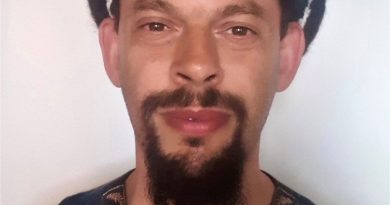Internship Spotlight: Kurdistan Regional Government Diplomatic Intern
Sophia Alicea
Staff Writer
This past summer in Washington, D.C. was nothing short of transformative. As a diplomatic intern for the Kurdistan Regional Government (KRG), I had the rare privilege of immersing myself in the political heart of the United States while deepening my understanding of a region whose history, culture, and ongoing struggle for sovereignty have long inspired me.
From the very beginning, my internship provided a window into the resilience of the Kurdish people. The KRG’s ongoing pursuit of sovereignty, autonomy, and recognition on the international stage offered me a real-world case study of international law, diplomacy, and statelessness in action. Conversations with my colleagues and mentors illuminated not just the legal and political complexities of Kurdish sovereignty, but also the cultural depth and spirit of a people who have endured decades of displacement and denial of rights.
Walking to work each morning, I passed embassies representing countries from around the world. Flags waved from stone buildings along Embassy Row, each a visible marker of sovereignty. And then there was the KRG mission—just as busy, just as dedicated, but representing a people still fighting for international recognition. Inside, I witnessed the fearless hard work of my colleagues making sure the Kurdish story was heard in Washington.
The work was varied and dynamic. Some days were filled with writing briefs, attending meetings, or drafting notes. Others, I was in the Senate or the House of Representatives, listening as lawmakers discussed foreign aid, regional security, and counterterrorism. It was surreal to sit in rooms where history felt alive and a single decision could shape the future of millions.
For me, this was not only an academic experience, but a deeply human one. It brought life to the questions I studied in class and through my own research. Being able to observe the KRG’s mission in Washington allowed me to see how international law interacts with lived realities. I saw how diplomacy can be both a shield and a bridge for those seeking recognition on the global stage.
This experience solidified my passion for international law and the rights of stateless persons. . The Kurdish case reminded me of the urgency to create legal and diplomatic frameworks that uphold human dignity, especially for populations that the international system far too often sidelines.
At a time when global politics are rapidly shifting; when questions of identity, borders, and sovereignty dominate international discourse, my time with the KRG gave me both professional insight and personal clarity. It sharpened my vision of the kind of lawyer and advocate I want to become: one committed to justice, recognition, and the protection of those whose rights are too often overlooked.
Looking back, this summer was life changing. It gave me not only professional experience, but also conviction. Conviction that international law matters most when it amplifies the voices of the stateless. Conviction that diplomacy is just as much about persistence as it is about policy. And conviction that I want to keep working in the spaces where sovereignty is contested and where recognition is still being fought for.

